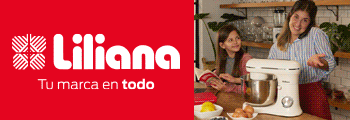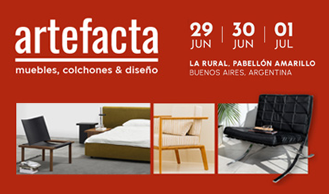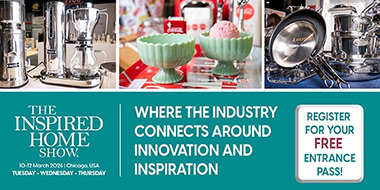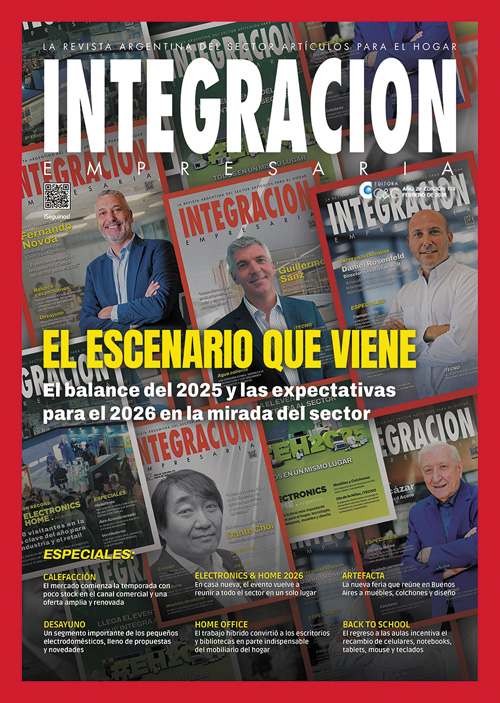Peabody disembarks in the USA
More than forty years ago, Do Sun Choi arrived in Argentina with his parents and a brother, without money, without documents and without [...]
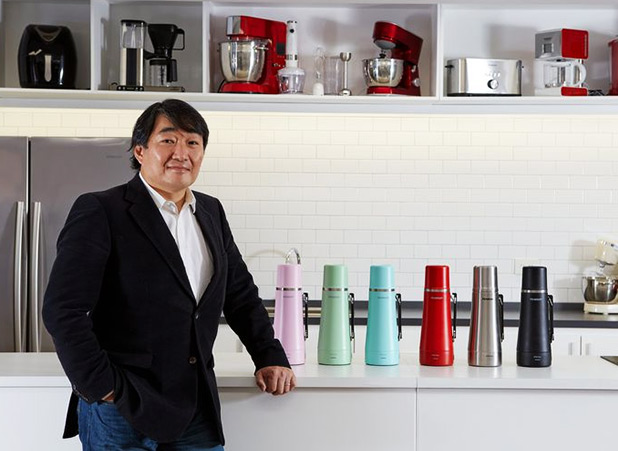
More than forty years ago, Do Sun Choi arrived in Argentina with his parents and a brother, without money, without documents and without anyone knowing a word of Spanish. A monoblock in Fuerte Apache went to stop and the first steps were taken with a small bicycle shop in which parents and children worked.
Today that Korean immigrant arrived with nothing from Seoul, is in charge of a company (Goldmund Peabody) that invoices $ 4000 million, employs 180 people and advances in a regional expansion process that has as its next objective the landing in the United States.
For its arrival to the North American market, Choi has all the chips put in its last launch: the first e-termo (or intelligent thermos), which combines in the same product a latest generation thermos with an electric turkey, and with which Peabody bets nothing less than going out to compete with Stanley, the brand that became the last great aspirational object for Argentine consumers.
"I always had the idea of growing with Peabody beyond Argentina. Today we have our own subsidiaries in Uruguay and Paraguay and a distributor in Bolivia. And the next step is to open in the United States, because I think it is the only way to make a truly global brand from Argentina," explains the Korean/Argentine businessman from his Buenos Aires offices.
The landing in the US will come from the hand of its e-termo, a product in which they have been working for seven years. The product is initially importing from China, from a 100% Argentine design, but Peabody's idea is to start its production at its Hurlingham plant, with an investment of $ 60 million.
In Argentina, 3.5 million thermals are sold per year and the business is clearly dominated by the most economical products -Lumilagro is by far the most popular brand -, with an average price of $ 3000. Peabody will not compete in this segment, but points to the premium thermos niche that opened the American brand Stanley (which are obtained in the local market at 10,000/11,000 pesos). "Our product is the first smart thermos and we will compete directly with Stanley, with a sale price of $ 12,999 and the goal of having 10% of the local market," explains Choi.
In the case of the North American market, Peabody's commitment does not obviously pass by the consumption of mate but for coffee and added value. "From the first moment, the idea with Peabody was always to do something different from the offer that already exists in the market. We want to produce with added value, competing with the Argentine design. Outside it is impossible to do it with a price, but we have the advantage that in international terms the Argentine talent in design is super competitive and first level," says Choi.
Of auction
Peabody is not a brand created by Choi. The businessman of Korean origin acquired it in 2004 at the hands of the Newsan Group, which in turn had stayed with the brand as part of the Philco package. "Nobody knows very well what the origin of the Peabody brand is but what interested us was the positioning it had in the ice cream shops. I think Peabody's is an emblematic case of recovery of a traditional brand and at one point a move of this type was only possible at a time like that. With the crisis of 2001/2002 there was a general disassembly of the entire market and at a point I think that we are a product of that crisis.
Choi explains that the company's strategy was the development of a brand that did not compete for price. "When we started with Peabody, we did not have enough capital to invest in product, marketing and the channels, and we had to choose. At that time we decided to prioritize the product, with the focus on the design. I think that comes from my immigrant condition. Identity is a topic for me, because throughout my life I had many identity crisis, because I am KUEGANO, but I am also Argentine."
This idea of not competing for price but with design and added value, in turn, was reinforced with the local and international context. “On the one hand, we are with a government that drives the national industry and that is therefore more reluctant to facilitate import entry. And to this is added the increase in costs in China, especially in the large cities of the coastal area, where the minimum wage is already located in the 1200 dollars per month. And it must also be taken into account that the logistics costs are increasingly high. The transport became a decisive point and today From China it does not fall from 10,000 dollars, which more than ever the business ceased to be importation. ”
Before launching with his own company, he worked for fifteen years in the Argentine subsidiary of the Korean company Daewoo. “I entered the company as a translator. The idea of mine was to work three months and in the end I ended up staying for fifteen years. My last position was as a commercial manager of a giant who had businesses in cars, electronics, textiles and even in agric Liabilities that exceeded US $ 70,000 million, ”he explains.
The bankruptcy of Daewoo finished him to launch himself and in 1998 he launched a first company in the computer field, focused on the importation of supplies for the terminals based in Tierra del Fuego. This first personal venture did not survive the 2001 crisis and Choi says that it was more than a year without income.
In 2003 he decided to start over and founded another society, baptized Goldmund, and a year later he added the Peabody brand. "We started with nothing. We were three people in a rented office and the only capital we had were the contacts that I had accumulated in Daewoo and in my years working in the industry," says the businessman. "The first steps were taken as importers and we started bringing products from China and South Korea to sell in retail chains and we also become component suppliers for the Tierra del Fuego industry."
Today Goldmund Invoice $ 4000 million and has four business divisions: heating; fans and air conditioning; small appliances and white line. The firm has its own plant in Hurlingham and also advances with an investment of $ 550 million to inaugurate a second factory in Ezeiza. “The idea is to open the plant in Ezeiza by 2022 and with this inauguration we will reach the 330 people. We are always working with long -term plans. I think that I bring from my Korean origin. Today Korea is fashionable in Argentina. There is even a magazine called Seoul Ideology, but I think it is a partial truth. preparing the entrance to the university literally sleep four hours a day.
Choi asegura que este modelo de trabajo lo lleva incorporado por su origen inmigrante. “With my family we arrived in Argentina in 1977. Here there was a military dictatorship and we had no documents and in fact we entered as illegal immigrants via Paraguay. The beginnings were really difficult. Like all the Koreans who lived in Buenos Aires, we had to install in Fuerte Apache. The options we had were three: Strong Apache, the town of Bajo Flores and another villa in the area of Lanús. Poverty and war.
The Nation / The first / Diego Sanchez
Latest news
Outstanding sector


